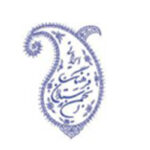Anniversary of the Birth of Bahá’u’lláh
November 12 marks the anniversary of the Birth of Bahá’u’lláh, who was born in 1817 in Tihrán, the capital of Persia. ‘Abdu’l-Bahá has said that “From the earliest childhood He was distinguished among His relatives and friends . . . . In wisdom, intelligence and as a source of new knowledge, he was advanced beyond His age and superior to His surroundings. All who knew Him were astonished at His precocity.” [1]
In a letter, Bahá’u’lláh recounts an episode from His childhood, when He saw an elaborate puppet show about war and intrigues in the court of a king and the riches of those in authority. After the performance, Bahá’u’lláh saw a man come out from the behind the tent with a box under his arm. “What is this box?” Bahá’u’lláh asked him, “and what was the nature of this display?” “All this lavish display and these elaborate devices,” the puppet master replied, “the king, the princes, and the ministers, their pomp and glory, their might and power, everything you saw, are now contained within this box.” Bahá’u’lláh then recalled:
“. . . Ever since that day, all the trappings of the world have seemed in the eyes of this Youth akin to that same spectacle. They have never been, nor will they ever be, of any weight and consequence, be it to the extent of a grain of mustard seed. . . .Erelong these outward trappings, these visible treasures, these earthly vanities, these arrayed armies, these adorned vestures, these proud and overweening souls, all shall pass into the confines of the grave, as though into that box. In the eyes of those possessed of insight, all this conflict, contention and vainglory hath ever been, and will ever be, like unto the play and pastimes of children. [2]
[1] ‘Abdu’l-Bahá, The Promulgation of Universal Peace, pp. 25-29
[2] Bahá’u’lláh, The Summons of the Lord of Hosts, pp. 167-168.
Category: Quotations










